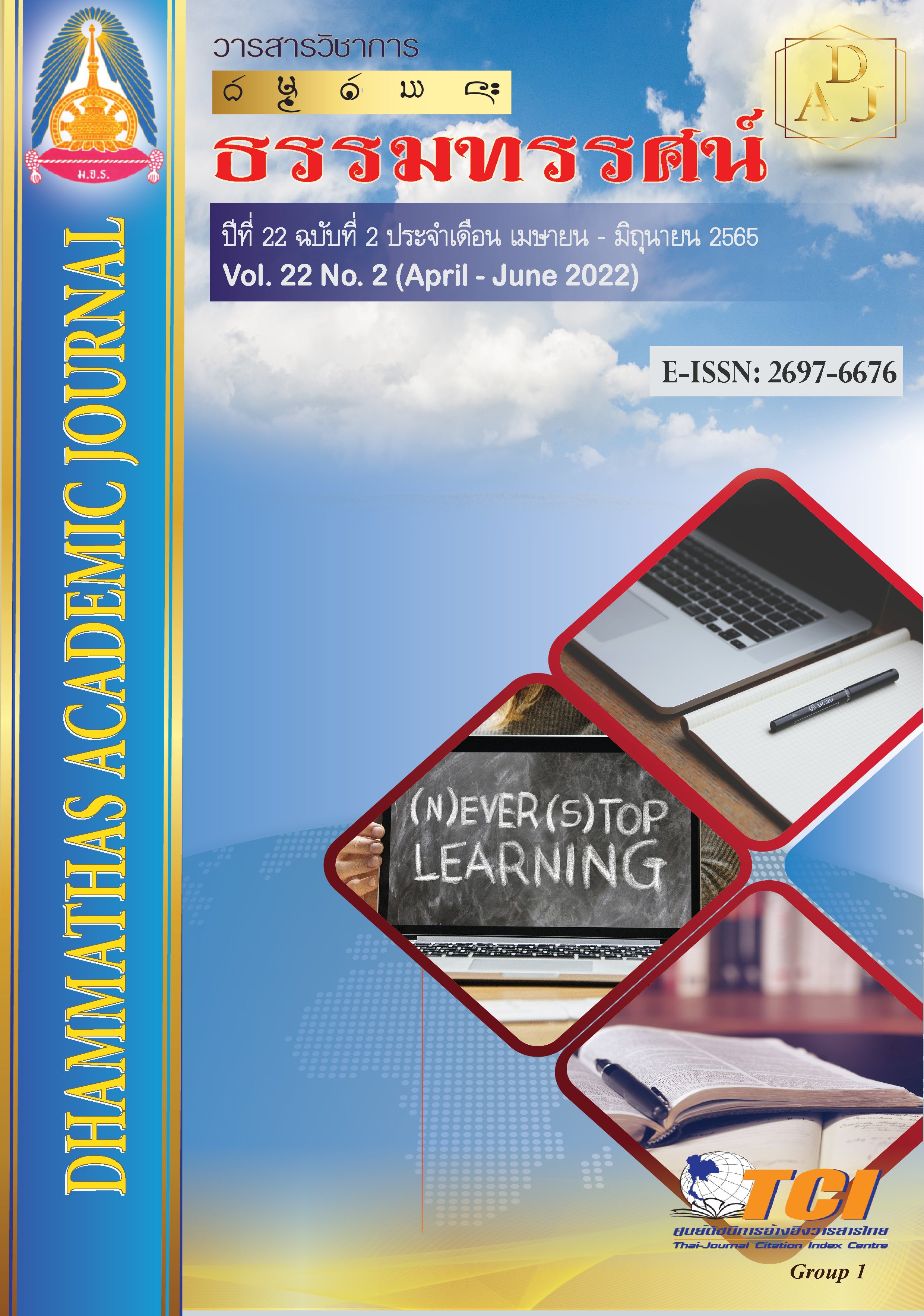Attributes of the Modern Local Politician and the Local Electoral Behavior of Voters
Main Article Content
Abstract
The purpose of this study 1) to study the level of the attributes of modern local politicians and decision-making local electoral of voters 2) to study the relationship between the attributes of modern local politicians and decision-making local electoral of voters 3) to study the attributes of modern local politicians that effect to decision-making local electoral of voters and 4) to find out the suggestions for the attributes of modern local politicians that relationshipto decision making on local electoral of voters. This research approach of mixed methods research was applied by combining the quantitative and qualitative methods. The quantitative method was conducted by studying 400 samples, this sample derived from the Gay and Airasian and the samples were selected by Stratified Random Sampling. The tools used to collect data was five level rating scale questionnaire. The statistics used to analyze data included percentage, mean, standard deviation, and Multiple Regression Analysis. The qualitative method was conducted by interviewing from the target group of 9, selected purposively from the local electoral experts. The data were analyzed by using content analysis.
The research results were show as follows:
1. The attributes of modern local politicians were at the highest level. The aspect with the highest mean wastransformational leadership, followed by innovation leaders and the least was the visionary.
2. The overall decision-making local electoral of voters were at the highest level. The aspect with the highest mean was the applicant's personal image, followed by family/kinship/network, and the least was environmental factors.
3. The attributes of modern local politicians and there were a positive correlation with decision-making local electoral of voters, at the moderate level, r = 0.679 was statistically significant at the .01 level.
4. The influence test of the attributes of modern local politicians revealed that was four variables that influenced the decision-making local electoral. At the statistical significance level of 0.05, in order of transformational leaders. Innovative Leader, Servant and Multicultural Coordinator.
Article Details

This work is licensed under a Creative Commons Attribution-NonCommercial-NoDerivatives 4.0 International License.
เพื่อให้เป็นไปตามกฎหมายลิขสิทธิ์ ผู้นิพนธ์ทุกท่านต้องลงลายมือชื่อในแบบฟอร์มใบมอบลิขสิทธิ์บทความ ให้แก่วารสารฯ พร้อมกับบทความต้นฉบับที่ได้แก้ไขครั้งสุดท้าย นอกจากนี้ ผู้นิพนธ์ทุกท่านต้องยืนยันว่าบทความ ต้นฉบับที่ส่งมาตีพิมพ์นั้น ได้ส่งมาตีพิมพ์เฉพาะในวารสาร วิชาการธรรม ทรรศน์ เพียงแห่งเดียวเท่านั้น หากมีการใช้ ภาพหรือตารางของผู้นิพนธ์อื่นที่ปรากฏในสิ่งตีพิมพ์อื่นมาแล้ว ผู้นิพนธ์ต้องขออนุญาตเจ้าของลิขสิทธิ์ก่อน พร้อมทั้ง แสดงหนังสือที่ได้รับการยินยอมต่อบรรณาธิการ ก่อนที่บทความจะได้รับการตีพิมพ์References
กลุ่มงานสารนิเทศ. (2555). การใช้สิทธิออกเสียงเลือกตั้ง. กรุงเทพฯ: สำนักประชาสัมพันธ์ สำนักงานเลขาธิการสภาผู้แทนราษฎร.
เฉลิมพล นุชอุดม. (2562). เกณฑ์ในการตัดสินใจเลือกผู้แทนระดับท้องถิ่นในเขตกรุงเทพมหานคร. วารสารวิชาการมหาวิทยาลัยปทุมธานี, 11(2), 32-44.
ชัยวุฒิ วรพินธุ์. (2557). คุณลักษณะภาวะผู้นำยุคใหม่กับสมรรถนะการบริหารงานแบบมืออาชีพของปลัดเทศบาลในภาคกลาง. วารสารสมาคมนักวิจัย, 19(1), 86-96.
โชติกา ใจทิพย์ และกฤษดา เชียรวัฒนสุข. (2561). ศักยภาพของผู้นำองค์กรธุรกิจในสถานการณ์โลกที่มีความผันผวนความไม่แน่นอน ความซับซ้อน และความคลุมเครือ. วารสารการจัดการธุรกิจ, 7(1), 1-14.
ไทยพับลิก้า. (2562). บันทึกปรากฏการณ์: สีสันทางการเมือง กับเลือกตั้ง 24 มีนาคม 2562. เข้าถึงได้จาก https://thaipublica.org/2019/03/thailand-election-2562-53/
นันธิกานต์ อุดม. (2553). ปัจจัยที่ส่งผลต่อการไปใช้สิทธิเลือกตั้งนายกนายกเทศมนตรีเทศบาลตำบลกระโสม อำเภอตะกัวทุ่ง จังหวัดพังงา. (วิทยานิพนธ์รัฐประศาสนศาสตรมหาบัณฑิต). กรุงเทพฯ: มหาวิทยาลัยราชภัฏสวนดุสิต.
ศิริรักษ์ บุญพร้อมรักษา, คมสันต์ ธีระพืช และวิชุดา จันทร์เวโรจน์. (2564). บทบาทของผู้นำยุคใหม่ที่มีผลต่อการจัดการองค์การบนฐานวิถีชีวิตใหม่. วารสารวิทยาการจัดการปริทัศน์, 23(2), 258-266.
สุกรี หรีมหนก. (2554). คุณลักษณะของนายกเทศมนตรีที่พึงประสงค์ของประชาชนในเขตเทศบาลตำบลชะรัด อำเภอกงหรา จังหวัดพัทลุง. (วิทยานิพนธ์รัฐประศาสนศาสตรมหาบัณฑิต). ชลบุรี: มหาวิทยาลัยบูรพา.
Duduciuc, A. (2012b). Morality versus competence in social perception of political candidates. Sfera Politicii, 20(5), 54-68.
Gay, L. R. & Airasian, P. (2003). Educational research: Competencies for analysis and applications. (7th ed.). Upper Saddle River, NJ: Pearson Education.
Hair et al. (1998). Multivariate Data Analysis. (5th ed.). New York: Pearson.
Marquardt, M. J. (2000). Action learning and leadership. The learning organization, 16(2), 233-240.
Resch & Bella. (2010). Electoral politics: commercialization exclusion”. In Political change in Thailand: Democracy and participation, pp. 132-148. Edited by Kevin Hewison London: Routledge.

